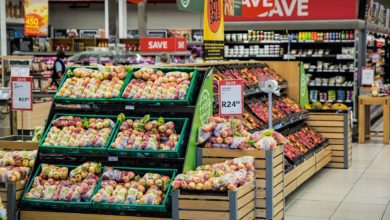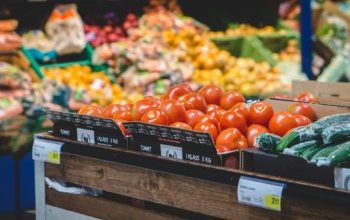Inflation remains steady at 4%
Monthly prices for food, excluding non-alcoholic beverages, also fell by 0.4% marking the first fall in almost two years and the largest fall since July 2021

Register to get 1 free article
Reveal the article below by registering for our email newsletter.
Want unlimited access? View Plans
Already have an account? Sign in
Inflation remained unchanged at 4% in January, despite forecasters expecting a slight rise as falling food prices offset an increase in the energy cap, according to the latest figures from the Office of National Statistics (ONS).
The news comes as the ONS revealed the annual inflation rate for housing, water, electricity, gas, and other fuels was 2.5% in January 2024, up from 1.9% in December 2023.
The main upward contribution came from gas, which rose by 6.8% on the month compared to a monthly rise of 0.3% last year. This led to the annual rate of gas falling by 26.5% in January 2024 compared with a fall of 31.0% in December 2023.
The price of electricity, gas, and other fuels in January 2024 is now 18% lower than at its peak in January 2023. However, the price in January 2024 is 89% higher than it was in January 2021.
The annual rate of food and non-alcoholic beverages fell from 8.0% in December 2023 to 7.0% in January 2024, which is the lowest annual rate since April 2022. The fall to 7.0% means the annual rate has eased for the 10th consecutive month, from a recent high of 19.2% in March 2023, which was the highest annual rate seen for over 45 years.
Monthly prices for food and non-alcoholic beverages fell by 0.4% between December 2023 and January 2024, compared with a rise of 0.6% a year ago. Monthly prices for food, excluding non-alcoholic beverages, also fell by 0.4% marking the first fall in almost two years and the largest fall since July 2021.
The ONS said this was driven by bread and cereals, where prices fell by 1.3% on the month, compared with a rise of 0.2% a year ago. The monthly fall was the largest since May 2021; some of the items providing larger negative contributions in this class were cream crackers, sponge cake, and chocolate biscuits.
Although the “bread and cereals” class provided the largest negative contribution, the slowing in the annual rate was fairly widespread across the division. Of the 11 classes, seven provided a downward contribution, while the others were unchanged. The items that provided larger negative contributions include potato crisps, cooking sauces, and instant coffee.
ONS Chief Economist Grant Fitzner said: “Inflation was unchanged in January reflecting counteracting effects within the basket of goods and services.“The price of gas and electricity rose at a higher rate than this time last year due to the increase in the energy price cap, while the cost of second-hand cars went up for the first time since May.
“Offsetting these, prices of furniture and household goods decreased by more than a year ago and food prices fell on the month for the first time in over two years. All of these factors combined resulted in no change to the headline rate this month.”







